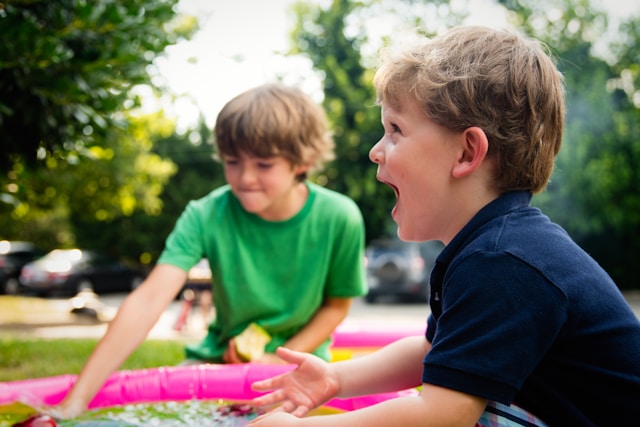
11 Sep What to Do When Your Child Feels Left Out
Few things tug at a parent’s heart more than hearing, “Nobody wanted to play with me today.” Feeling left out is painful for kids, and it can also leave parents unsure of how best to respond. While you can’t protect your child from every disappointment, you can help them build the skills and resilience to handle these moments with confidence.
Listen and Validate First
When your child shares that they’ve felt excluded, resist the urge to jump into problem-solving right away. Instead, start with empathy. Simple responses like “That sounds really hard” or “I can see why you felt sad” validate their feelings and let them know you’re on their side. Sometimes, being heard is the most healing step.
Encourage Perspective-Taking
Exclusion doesn’t always mean rejection. Kids often forget that peers may have had different reasons—limited spots in a game, pre-planned playdates, or even just not noticing someone nearby. Gently guiding your child to consider alternative perspectives can help them feel less personally hurt and build empathy for others.
Build Empathy and Social Skills
If your child frequently feels left out, practicing social skills at home can make a big difference. Role-playing introductions, practicing how to join a group activity, and learning to read social cues can equip them with tools to connect more easily. These exercises don’t just reduce loneliness; they also boost confidence.
Create Opportunities for Connection
Help your child foster friendships in smaller, low-pressure settings. Playdates, extracurricular activities, and community groups can give them a chance to shine and connect without the intensity of larger peer groups. Over time, these smaller wins can grow into lasting friendships.
Remember: feeling left out is a common part of growing up, but it doesn’t have to define your child’s experience. With empathy, perspective, and practice, kids can learn to turn these moments into opportunities for growth and resilience.
At Galvin Growth Group, we offer The Art of Socializing — a Social Skills Builder Workshop series designed to help kids develop confidence, communication, and connection. Through guided activities, perspective-taking, and practice with peers, children gain the tools to navigate social situations with more ease. If your child has been struggling to find their place, this workshop may be a meaningful step forward. Look to see when we are next running the workshop here.

